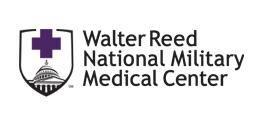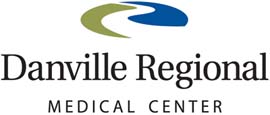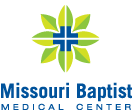Bortezomib and Pegylated Liposomal Doxorubicin Hydrochloride in Treating Patients With Previously Untreated Symptomatic Multiple Myeloma
| Status: | Active, not recruiting |
|---|---|
| Conditions: | Hematology, Hematology |
| Therapuetic Areas: | Hematology |
| Healthy: | No |
| Age Range: | 18 - Any |
| Updated: | 3/17/2019 |
| Start Date: | June 15, 2004 |
Phase II Study of Bortezomib (PS-341) and Pegylated Liposomal Doxorubicin as Initial Therapy for Adult Patients With Symptomatic Multiple Myeloma
This phase II trial studies the side effects and how well bortezomib and pegylated liposomal
doxorubicin hydrochloride work in treating patients multiple myeloma that are experiencing
symptoms and have not received prior treatment. Bortezomib and pegylated liposomal
doxorubicin hydrochloride may stop the growth of cancer cells by blocking some of the enzymes
needed for cell growth.
doxorubicin hydrochloride work in treating patients multiple myeloma that are experiencing
symptoms and have not received prior treatment. Bortezomib and pegylated liposomal
doxorubicin hydrochloride may stop the growth of cancer cells by blocking some of the enzymes
needed for cell growth.
PRIMARY OBJECTIVE:
I. To evaluate the complete response (CR) + near-complete response (nCR) rate of the
bortezomib/pegylated liposomal doxorubicin (pegylated liposomal doxorubicin hydrochloride)
regimen in patients with previously untreated, symptomatic multiple myeloma.
II. To evaluate the toxicity of the bortezomib/pegylated liposomal doxorubicin regimen in
patients with previously untreated, symptomatic multiple myeloma.
SECONDARY OBJECTIVES:
I. To evaluate the overall response rate, including patients with CR, nCR, and partial
response (PR), of the bortezomib/pegylated liposomal doxorubicin regimen in patients with
previously untreated, symptomatic multiple myeloma.
II. To evaluate the impact of therapy with the bortezomib/pegylated liposomal doxorubicin
regimen on the ability to collect peripheral blood stem cells in those patients going on to
subsequent autologous stem cell transplantation.
III. To evaluate the time to progression (TTP) in all patients receiving bortezomib/pegylated
liposomal doxorubicin therapy, both those who go on to autologous stem cell transplantation
and those who do not go on to transplantation.
IV. To evaluate the value of early changes in levels of serum interleukin 6 (IL-6) and
macrophage inflammatory protein 1 alpha (MIP-1α) as predictors of response to
bortezomib/pegylated liposomal doxorubicin.
V. To correlate pre-treatment clinical and biological characteristics with response to
therapy and toxicity.
OUTLINE:
Patients receive bortezomib intravenously (IV) over 3-5 seconds on days 1, 4, 8, and 11 and
pegylated liposomal doxorubicin hydrochloride IV over 1 hour on day 4. Treatment repeats
every 21 days for up to 8 courses in the absence of disease progression or unacceptable
toxicity.
After completion of study treatment, patients are followed up every 6 weeks for 2 years and
then every 6 months for 3 years.
I. To evaluate the complete response (CR) + near-complete response (nCR) rate of the
bortezomib/pegylated liposomal doxorubicin (pegylated liposomal doxorubicin hydrochloride)
regimen in patients with previously untreated, symptomatic multiple myeloma.
II. To evaluate the toxicity of the bortezomib/pegylated liposomal doxorubicin regimen in
patients with previously untreated, symptomatic multiple myeloma.
SECONDARY OBJECTIVES:
I. To evaluate the overall response rate, including patients with CR, nCR, and partial
response (PR), of the bortezomib/pegylated liposomal doxorubicin regimen in patients with
previously untreated, symptomatic multiple myeloma.
II. To evaluate the impact of therapy with the bortezomib/pegylated liposomal doxorubicin
regimen on the ability to collect peripheral blood stem cells in those patients going on to
subsequent autologous stem cell transplantation.
III. To evaluate the time to progression (TTP) in all patients receiving bortezomib/pegylated
liposomal doxorubicin therapy, both those who go on to autologous stem cell transplantation
and those who do not go on to transplantation.
IV. To evaluate the value of early changes in levels of serum interleukin 6 (IL-6) and
macrophage inflammatory protein 1 alpha (MIP-1α) as predictors of response to
bortezomib/pegylated liposomal doxorubicin.
V. To correlate pre-treatment clinical and biological characteristics with response to
therapy and toxicity.
OUTLINE:
Patients receive bortezomib intravenously (IV) over 3-5 seconds on days 1, 4, 8, and 11 and
pegylated liposomal doxorubicin hydrochloride IV over 1 hour on day 4. Treatment repeats
every 21 days for up to 8 courses in the absence of disease progression or unacceptable
toxicity.
After completion of study treatment, patients are followed up every 6 weeks for 2 years and
then every 6 months for 3 years.
Inclusion Criteria:
- Patients must have a histologically confirmed diagnosis of symptomatic multiple
myeloma with evaluable disease parameters
- A diagnosis of symptomatic multiple myeloma requires:
- A monoclonal serum and/or urine protein
- Clonal bone marrow plasmacytosis, or a histologically confirmed plasmacytoma
- Related organ or tissue impairment, consisting of:
- Hypercalcemia (serum calcium > 0.25 mmol/l above the upper limit of normal,
or > 2.75 mmol/l [i.e. > 11.5 mg/dl]) AND/OR
- Renal insufficiency (serum creatinine > 173 mmol/l [i.e., > 2 mg/dL]);
(please note that serum creatinine may not be >= 2.5 mg/dL) AND/OR
- Anemia (hemoglobin 2 g/dl below the lower limit of normal, or hemoglobin <
10 g/dl) AND/OR
- Bony lesions (lytic bony lesions, or osteoporosis with compression
fractures) AND/OR
- Other findings, such as symptomatic hyperviscosity, amyloidosis, or
recurring bacterial infections (> 2 episodes in 12 months)
- Patients may not have undergone any prior therapy, with the following exceptions:
- Prior plasmapheresis with plasma exchange (PLEX) for a hyperviscosity syndrome is
allowed, providing the patient has no current evidence of hyperviscosity and has
not required PLEX for at least one week prior to initiation of therapy
- Prior radiation therapy to areas of spinal cord compression by plasmacytomas,
painful lesions due to bony involvement, or other myeloma-related indications, is
allowed provided that radiation will have been completed 3 weeks before
initiation of therapy
- Prior surgical intervention, such as for bony fractures or other myeloma-related
complications, is allowed provided that this will have been completed 3 weeks
before the initiation of therapy, and patients have recovered from surgery
- Prior therapy with corticosteroids for indications other than multiple myeloma is
allowed, provided such therapy has been discontinued at least two weeks prior to
study entry, and at least two weeks before their baseline disease evaluation
- Prior supportive therapy with bisphosphonates or erythropoietin is allowed
- Inclusion of females of childbearing potential requires a negative pregnancy test
- Eastern Cooperative Oncology Group (ECOG) performance status =< 2
- Patients may not have a prior history of a hypersensitivity reaction to pegylated
liposomal doxorubicin or doxorubicin, bortezomib or other boronic acid-based compounds
- Patients with a history of reactions to liposomal drug formulations other than
pegylated liposomal doxorubicin will be evaluated individually, and if their
reactions were felt to have been due to the liposomal component itself, as
opposed to the encapsulated agent, they will be excluded at the discretion of the
investigators
- Patients who are known to be human immunodeficiency virus (HIV)-seropositive and are
taking anti-retrovirals may not participate in this study; patients who are
HIV-seropositive and not on anti-retroviral therapy, and who otherwise meet the organ
function criteria, will be eligible for the study
- Patients who are known to have active hepatitis A, B, or C viral infection may not
participate in this study
- No electrocardiogram (EKG) evidence of acute ischemia
- No EKG evidence of medically significant conduction system abnormalities
- No history of myocardial infarction within the last 6 months
- Left ventricular ejection fraction (LVEF) must be >= 45% by either echocardiography or
radionuclide-based multiple gated acquisition (radionuclide ventriculography [RNV] or
multiple gate acquisition scan [MUGA])
- No class 3 or class 4 New York Heart Association congestive heart failure
- Creatinine < 2.5 mg/dL
- Alanine aminotransferase (ALT) (serum glutamate pyruvate transaminase [SGPT]) and
aspartate aminotransferase (AST) (serum glutamic oxaloacetic transaminase [SGOT]) =<
2.5 times the upper limit of the institutional normal value
- Total bilirubin =< 1.2 times the upper limit of the institutional normal value
- Absolute neutrophil count (ANC) >= 1,000/ul
- Platelets >= 100,000/ul
- Hemoglobin >= 8 g/dl (transfusion- and/or growth factor-dependent patients are not
excluded if the above parameters can be achieved with such support)
- For those patients receiving warfarin (Coumadin), unfractionated heparin, or
low-molecular weight heparin therapy, the applicable coagulation parameter that is
being monitored must be within the accepted therapeutic ranges for those indications
We found this trial at
25
sites
8901 Rockville Pike
Bethesda, Maryland 20889
Bethesda, Maryland 20889
(301) 295-4000

Walter Reed National Military Medical Center The Walter Reed National Military Medical Center is one...
Click here to add this to my saved trials
Roswell Park Cancer Institute Welcome to Roswell Park Cancer Institute (RPCI), America's first cancer center...
Click here to add this to my saved trials
1 South Prospect Street
Burlington, Vermont 05401
Burlington, Vermont 05401
802-656-8990
Click here to add this to my saved trials
Holy Cross Hospital While spirituality plays an essential role in the way that we minister...
Click here to add this to my saved trials
Click here to add this to my saved trials
Click here to add this to my saved trials
Click here to add this to my saved trials
Click here to add this to my saved trials
5841 S Maryland Ave
Chicago, Illinois 60637
Chicago, Illinois 60637
1-773-702-6180

University of Chicago Comprehensive Cancer Center The University of Chicago Comprehensive Cancer Center (UCCCC) is...
Click here to add this to my saved trials
Danville Regional Medical Center For more than 120 years, Danville Regional Medical Center has been...
Click here to add this to my saved trials
Click here to add this to my saved trials
Click here to add this to my saved trials
Click here to add this to my saved trials
Click here to add this to my saved trials
Click here to add this to my saved trials
4755 Ogletown-Stanton Road
Newark, Delaware 19718
Newark, Delaware 19718
302-733-1000

Christiana Care Health System - Christiana Hospital A 913-bed, 1.3-million-square-foot, modern facility in Newark, Delaware,...
Click here to add this to my saved trials
Click here to add this to my saved trials
Click here to add this to my saved trials
Click here to add this to my saved trials
660 S Euclid Ave
Saint Louis, Missouri 63110
Saint Louis, Missouri 63110
(314) 362-5000

Washington University School of Medicine Washington University Physicians is the clinical practice of the School...
Click here to add this to my saved trials
Click here to add this to my saved trials
Missouri Baptist Medical Center You just feel it. The smile that greets you. The hand...
Click here to add this to my saved trials
Click here to add this to my saved trials
Click here to add this to my saved trials
1 Medical Center Blvd
Winston-Salem, North Carolina 27157
Winston-Salem, North Carolina 27157
336-716-2011

Wake Forest University Health Sciences Welcome to Wake Forest Baptist Medical Center, a fully integrated...
Click here to add this to my saved trials



